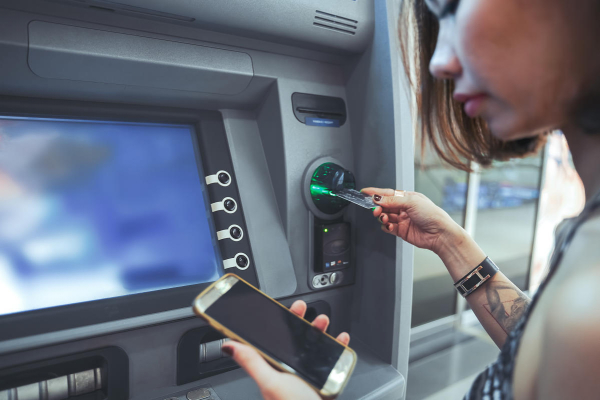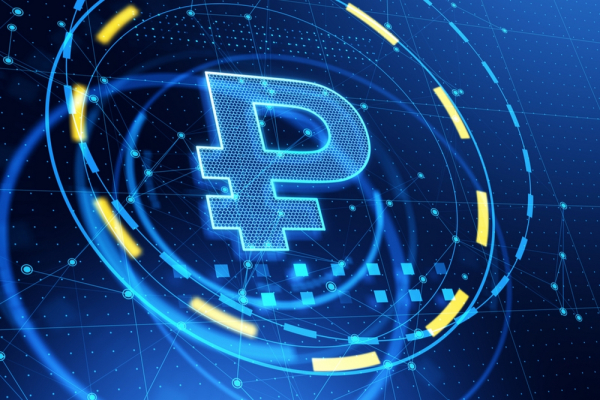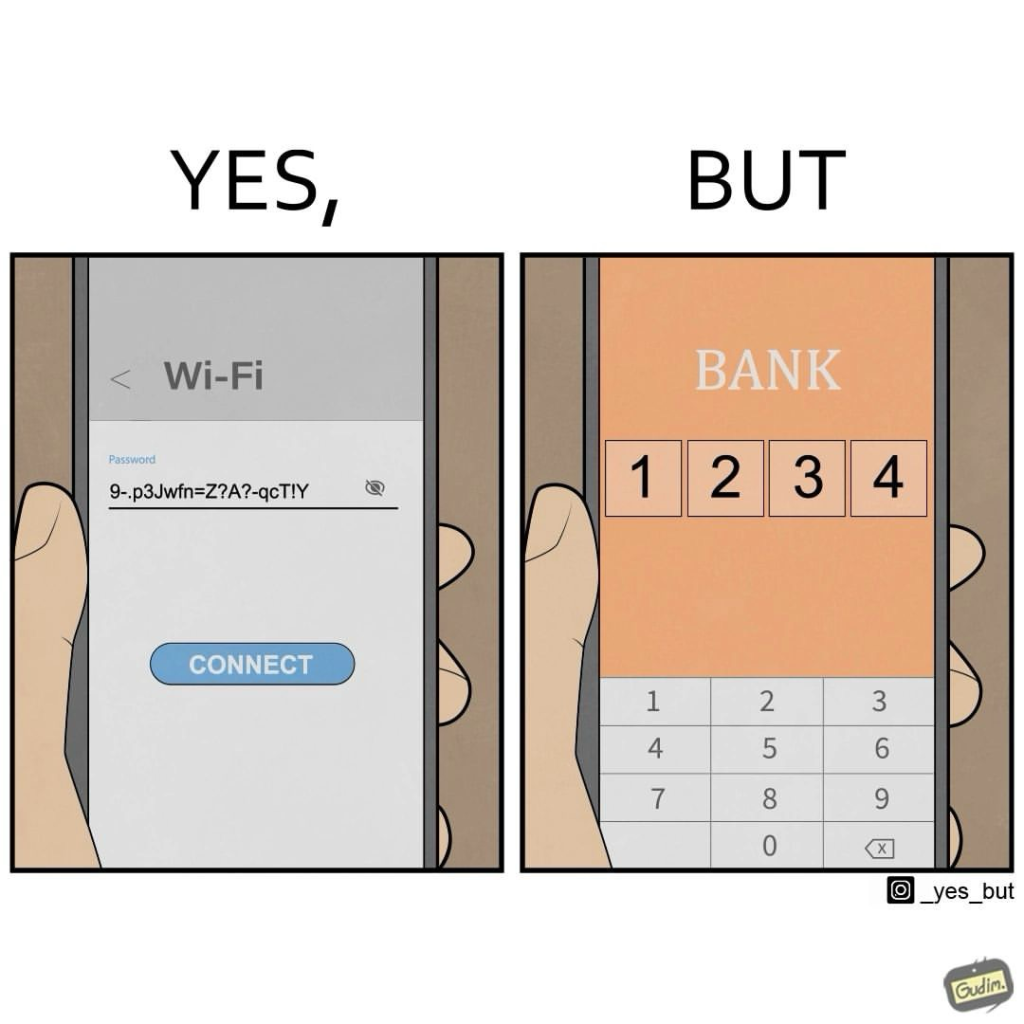Suche
Beiträge, die mit banking getaggt sind
A combination of good high-speed internet coverage, high digital literacy rates, large rural populations and fast-growing fintech industries had put the Nordic neighbours on a fast track to a future without cash.
Swish, a mobile payment system that six banks launched in 2012, is ubiquitous in Sweden, from market stalls to coffee shops and clothes stores. The Norwegian equivalent, Vipps, which merged with Danish MobilePay in 2022 to form Vipps MobilePay, is also very popular. Last month, it also launched in Sweden."
#Sweden #Norway #CashlessSociety #Russia #CyberSecurity #Money #Banking
https://www.theguardian.com/world/2024/oct/30/sweden-and-norway-rethink-cashless-society-plans-over-russia-security-fears
Now, the CFPB wasn't gathering this data just to make you mad. They wanted to do something about all this money – to find a way to lower switching costs, and, in so doing, transfer all that money from bank shareholders and executives to the American public.
And that's just what they did. A newly finalized Personal Financial Data Rights rule will allow you to authorize third parties – other banks, comparison shopping sites, brokers, anyone who offers you a better deal, or help you find one – to request your account data from your bank. Your bank will be required to provide that data.
I loved this rule when they first proposed it:"
https://pluralistic.net/2024/11/01/bankshot/#personal-financial-data-rights
#SwitchingCosts #USA #Banking #Banks #FinancialData #Interoperability #OpenData
About the banking trap trapping many generations of petty crooks
#banksters #banking #fraud #capitalism is low #culture

Check kiting goes viral on social media. Is it bank fraud?
Check kiting involves writing a bad check and then withdrawing the funds before the bank reverses the transaction. Kiting checks is a crime with serious...Sarah C. Brady (Yahoo Finance)
About Capitalists' worst nightmare
In fact, what’s startling for people used to the cronyism of the West, is that if you click through each member of the Bank of Russia’s board of directors, you’ll note that all, save one, are career state bankers, economists, or some type of career state employees. Meaning they’ve worked in various positions in the Bank of Russia or other state institutions for the majority of their careers rather than in private hedgefunds, investment firms, corporations, and the like, as is so common in the U.S. Federal Reserve system.Russia's CBDC - Exploring the Truth of Russia's Central Bank
...
It’s clear that the most epochal global seachange that could happen in our lifetimes would be the dissolution of the Western fiat banking system which has controlled the globe for hundreds of years, and on which the pillars of the most toxic forms of crony capitalism were built. But also specifically, the dollar as reserve currency and its attendant ‘exorbitant privilege’, which has fueled the unipolar model of the world for decades, unleashing a wave of unfettered imperialism that drowned the developing world in oceans of blood, felled countries and continents alike, turning them into broken, impoverished, lawless slave-pits—like for example Libya, and many others.
As an appetizer:
THE MERCHANT OF VENICE by William Shakespeare
#money #finance #banking #russian #economy #Russia #USA #us #fed #rothschild #western #capitalism #imperialism #globalism #wef #usury #shakespeare

Russia's CBDC - Exploring the Truth of Russia's Central Bank
Recently I’ve gotten a lot of requests to discuss Russia’s new digital Ruble, signed into law by Putin on July 24.Simplicius The Thinker (Simplicius's Garden of Knowledge)
Why does the government not print money?
Addiction
You might be wondering, why not just pay directly? Why this side route through state securities? After all, money spent on interest payments is money not spent on government obligations.
The answer is that paying the interest — which is up to fifteen percent of the US federal budget — is so costly that the government is left with insufficient funds. The answer is more debt. When you can't afford to borrow, the easy solution is to borrow more. The answer is an addiction.
Politicians are placed in an unworkable situation: constituents want lower taxes while the government is expected to provide the same level of service. How to make everyone happy? Borrow money and leave it to some future politician to deal with the debt.
Inflation
The government could print money to discharge its obligations. The question is then, what is to stop politicians from recklessly printing money? What is the natural brake on such a system? It can be the same limit that the central banks observe. When the inflation rate exceeds an arbitrary limit, usually two or three percent, a central banks raises the prime interest rate — the rate at which it lends money to banks — thereby making it more costly for other banks to create money.
Using this as a legal limit, the government would be free to print as much money as it wants, provided that the inflation target is not exceeded. The government still receives taxes, but in this case, extinguishes the money. This is what banks do to money that repays loans that it has made.
Recessions
The bigger the economy grows, the more money the government may create, and this is even desireable. This is a virtuous circle. During a recession, government expenditures would be reduced. This is a vicious circle. The parliament could vote to set aside the limit in order to stimulate growth. Normally, central banks do this, again by adjusting the prime lending rate, but the other banks are notoriously stingy with loans in an uncertain economic environment, because the likelihood of default in a recession is higher. The new money tends to flow toward safe investments, like real estate — but higher housing costs are nothing that workers want or need. The money could go instead to infrastructure projects that create jobs. Where factory campuses are created at government expense, for example, the private cost of building a factory is reduced. The government could even build the factories itself and sell them for a profit when the recession is over. That profit would be removed from circulation (extinguished) in order to reduce inflation, basically paying back the relaxation of the inflation limit. The critical feature is that any additional spending that is not used to discharge obligations (social security, government payrolls, defense, etc.) must be used for infrastructure.
Who decides what infrastructure and where? The government already invests in infrastructure projects and those questions already arise. These questions do not arise due to governments printing money.
Financial Stabilisation
The perversion of the existing system does not end there. The government is the final guarantor of the financial system. When banking recklessness brings about the collapse of a financial institution, the government uses tax dollars to bail the banks out, starting with the biggest. Everyone knows this, and so in a crisis, money tends to flow from small banks to big banks — from the innocent to the guilty — thereby increasing the concentration of money and political influence.
If the government printed its own money, it could allow reckless banks to fail while injecting liquidity among the responsible banks. The small banks would be safe havens. They are, in general, least likely to be involved in derivative trading or risky investments.
#financial crisis #banking crisis #inflation #recession

